9 Foods with More Protein Than an Egg for Weight Loss, Says Nutrition Coach
Okay, so you understand that protein is a key part of weight loss. But how are you supposed to get in 12 grams a day? Coach Melissa, founder of Fit Mission Nutrition, specializes in helping women over 35 "lose a pant size in 6 weeks." In a recent social media post, she discusses protein and the fallacy that eggs are a great source of it. "Eggs are not a high source of protein. That's not to say don't eat them, bc they are delicious and good for you…But two eggs isn't enough for breakfast, ladies!" she says.
How Much Protein Do You Really Need

She reveals that two eggs equals 12 g of protein. "Women 35+ working on fat loss need 25-30 grams at each meal!! Protein is vital for building and maintaining muscle, which gives you the 'toned' look you want. It helps keep you full for longer and helps with curbing sugar and carb cravings!" she says in her post before revealing nine high protein sources to add to your diet.
Egg Whites

While whole eggs may not be a great source of protein, egg whites are a great way to hit your goals without going overboard with calories and cholesterol. "One cup has 26g of protein and only 126 calories," Melissa says. "Hack—I add egg whites to the eggs I am already eating for more protein. 1/2 cup of egg whites has about 13g of protein. I buy the egg whites in a carton & beat them together with a whole egg to easily up my protein."
Non-Fat Greek Yogurt

Non-fat Greek yogurt is another low-calorie, no-sugar protein source. "1 cup is 25g protein & 140 cals. It comes in a ton of flavors to meet anyone's likes! Non-fat dairy is NOT the same as other non-fat foods. ONLY the saturated fat is removed," she says. It is also a good ingredient when cooking baked goods.
Non-Fat or Low-Fat Cottage Cheese
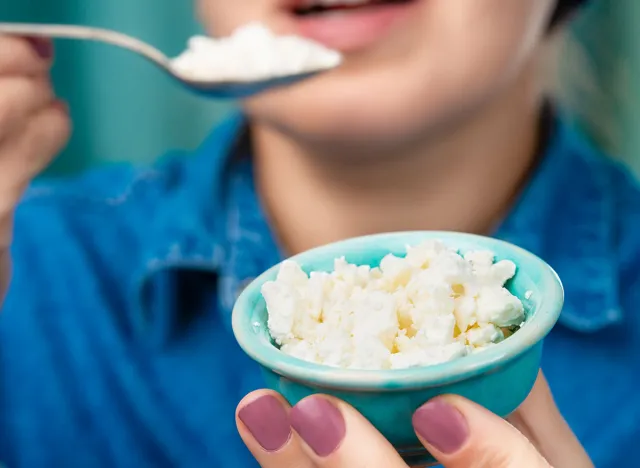
The next item on her list? Non-fat or low-fat cottage cheese can be eaten solo or added to recipes. "1 cup is 28g of protein & 180 cals. I eat it alone, with fruit, or even mix it into my marinara sauce & eggs to add creaminess + protein!!" she says.
Chicken Breast
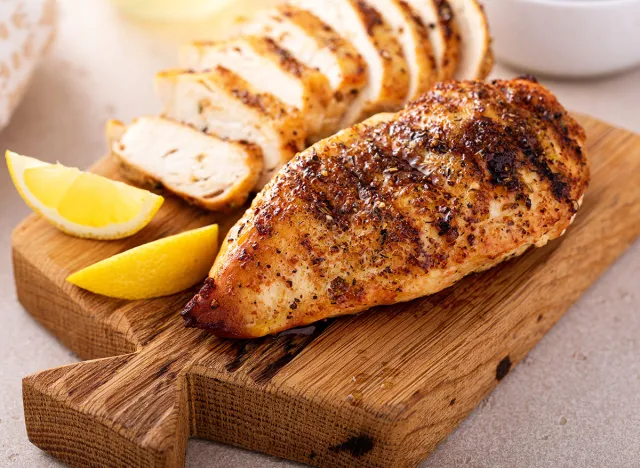
Number four on her list? Chicken breast is a favorite protein source of most health experts. "Just 3oz packs 24g of protein & 150 calories," she says. "Literally, the most versatile & lean protein source."
Tofu
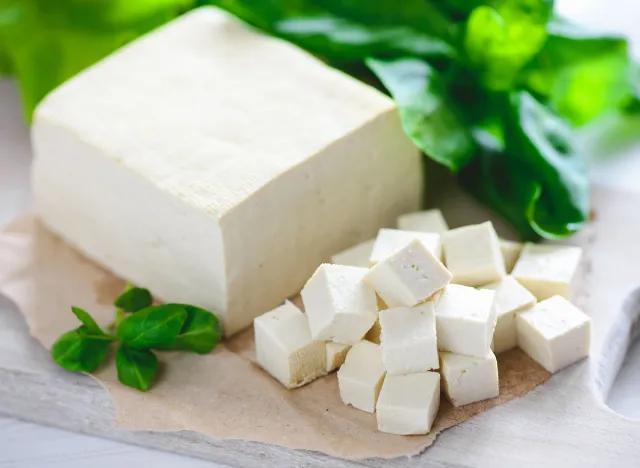
If you don't eat meat, don't worry. According to Melissa, tofu is a great meat-free protein source. "1 cup of tofu only has 150 cals & 18g of protein for my vegetarian friends!" she says.
Shrimp
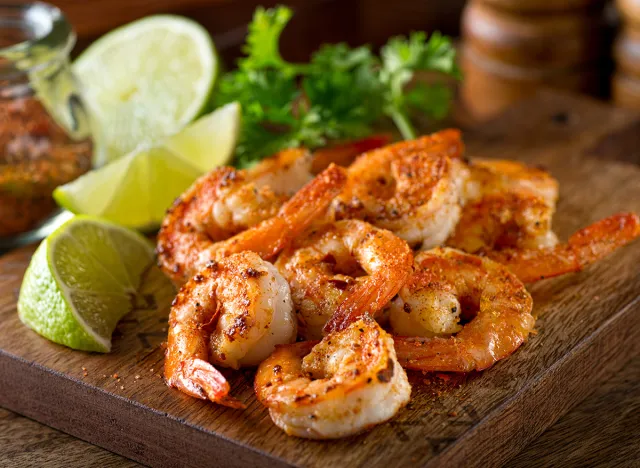
If you like seafood, eat shrimp to meet your protein goals. "Just 4.5oz is 30g & only 152 cals! This is the easiest source to keep in the freezer for a high protein & low-fat option you never run out of!" she says.
Lean Beef
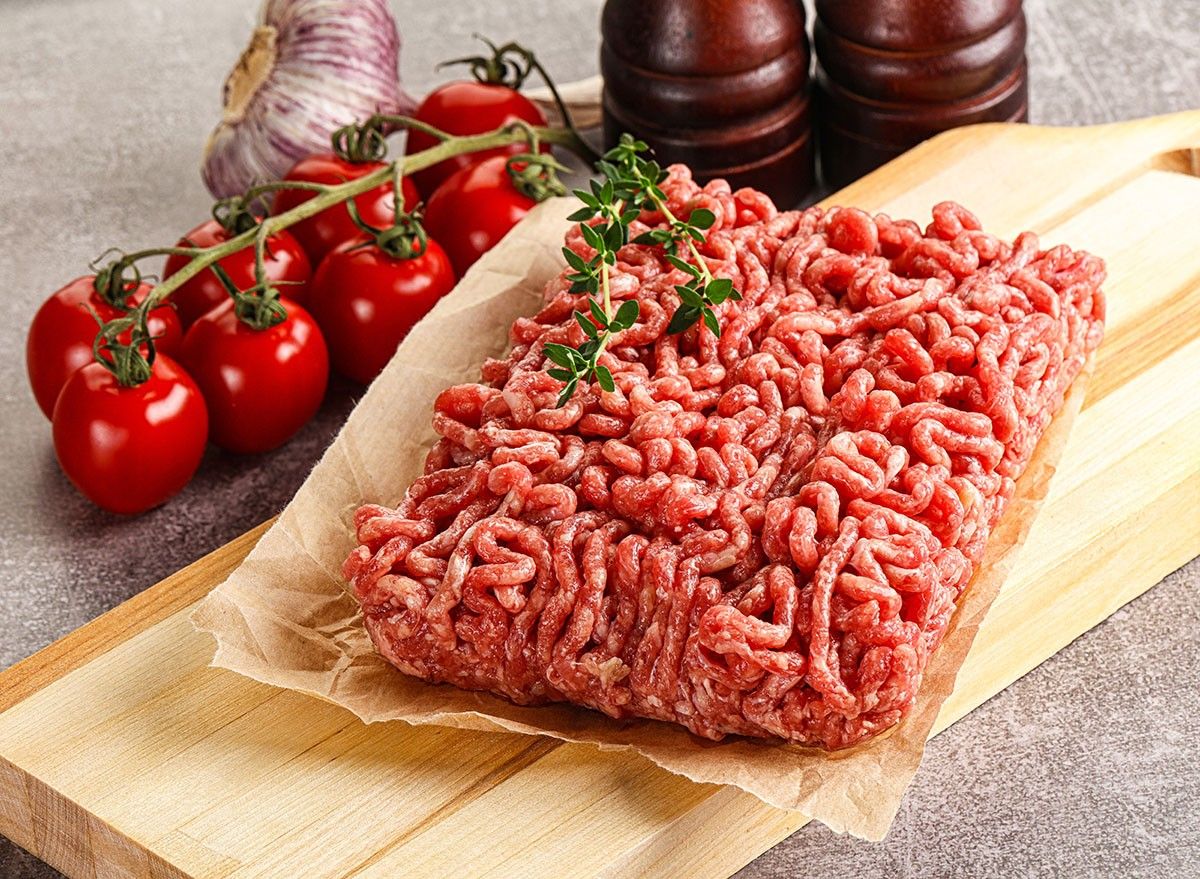
Seafood and poultry are not your only options for great protein sources. She also recommends lean ground beef. "Just 4oz packs 27g protein & 140 cals! Lean ground beef is so versatile: breakfast taco bowls, burgers, spaghetti," she writes.
Deli Turkey
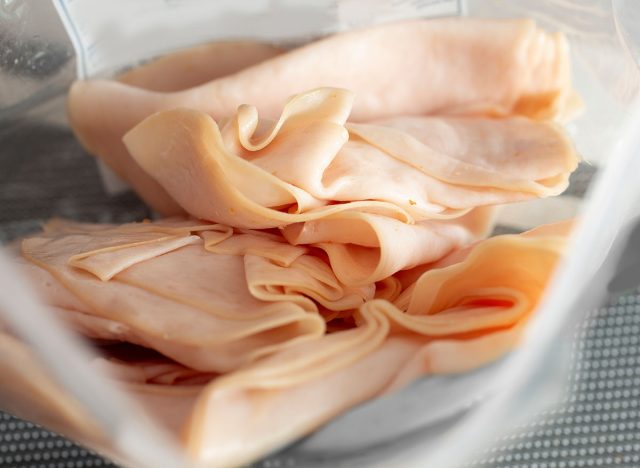
A convenient option, 4oz of deli turkey provides 20g of protein and 120 calories. Melissa suggests buying "organic or a good brand that's not pre-cut. Add it with an egg to an English muffin, or use it for a sandwich or wrap!"
RELATED: 61-Year-Old Lisa Rinna Shares 10 Daily Habits That Keep Her Looking Half Her Age
Tuna
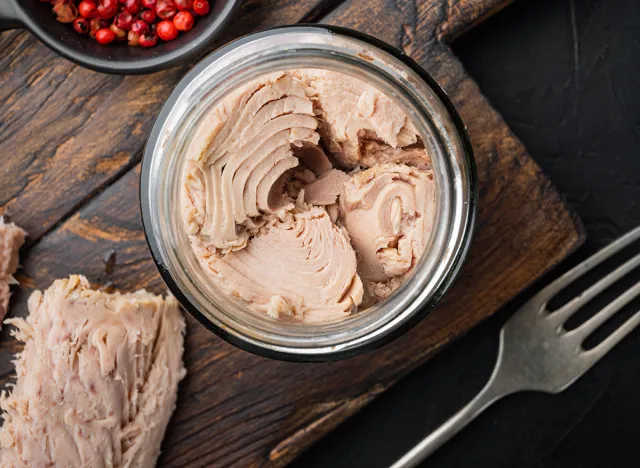
Keep canned tuna in your pantry when you need a no-fuss protein fix. "A can drained is 20g protein & only 100 calories! Super quick and easy, just make sure to get the kind in water, not oil," she says. Remember, for women over 35 working on fat loss, aim for 25-30g of protein at each meal. These protein-rich foods can help you reach that goal while supporting your weight loss journey. And if you enjoyed this article, take advantage of these 15 Quick Ways to Lose Body Fat Percentage in a Week.





